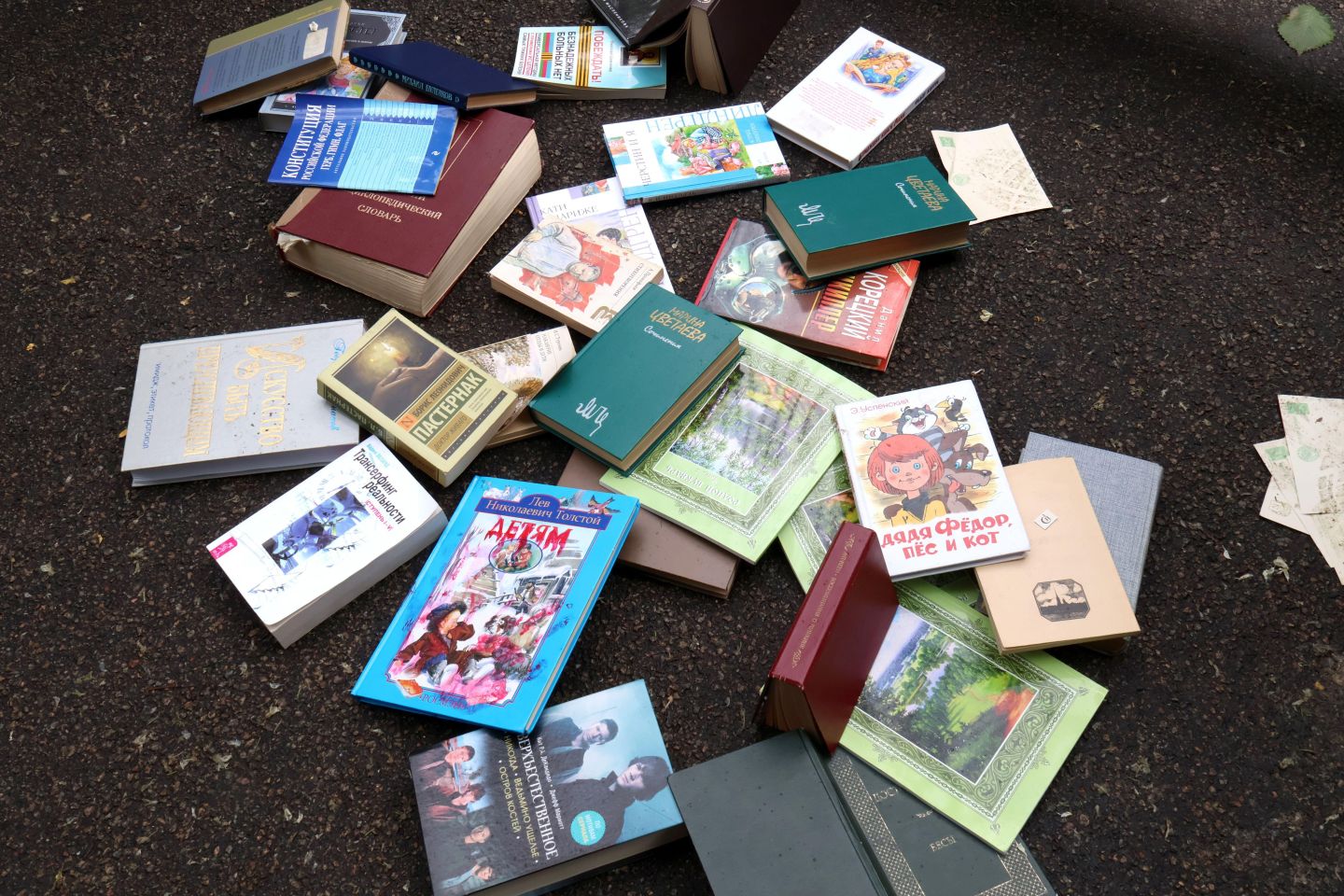
Caught in the crossfire: Minority languages in Ukraine
By Ágnes Dinnyés, Roma Programmes Assistant at Minority Rights Group Europe
‘The Russian language is banned in Ukraine’, Russian Foreign Minister Sergey Lavrov told the BBC in April 2022. But it isn’t.
The repeated claim, part of Russia’s pretext for invasion, is a reminder of the fraught political context of language policy in Ukraine. Russian is not banned in the country, but the use of Ukrainian is indeed compulsory in most aspects of public life. Efforts to solidify the use of Ukrainian are part of broader attempts to reinforce national identity after varying degrees of suppression and Russification dating back to even before the Soviet period.
Although Ukraine’s Constitution guarantees the free use of Russian and other minority languages, and anyone is free to speak their language in private, legislation severely curtails the usage of minority languages in public life. 81 per cent of Ukrainians speak Ukrainian in their personal life, 34 per cent speak Russian, with 19 per cent speaking both languages and many speaking Surzhyk, a hybrid form of the two. Other minorities include Belarussians, Crimean Tatars, Moldovans, Jews, Hungarians, Romanians and many heterogenous Roma communities, all speaking different languages.
In 2022, a new law was passed in Ukraine – the Law on National Minorities (Communities). It reflects on the expanded compulsory usage of Ukrainian in the public sphere already affected by previous legislation, by introducing rules on using minority languages in ‘communication with authorities’, although without sufficient concretum or precision. In Ukraine, all publicly available information, including announcements, signs and captions must be in Ukrainian with vague exceptions for when to duplicate such general information in minority languages. Private publishing houses must print, and bookstores sell, at least half their books in Ukrainian. National and regional mass media must distribute 90 per cent of content in Ukrainian. In the case of cultural, artistic or entertainment-related events organized in a minority language, the organizer must provide translation into Ukrainian ‘if requested by at least one participant.’ Elections are conducted in Ukrainian, and all campaigning material, regardless of format, must be in Ukrainian or when in a minority language, accompanied by the Ukrainian version. Moreover, electoral campaigning in minority languages is restricted to ‘settlements with an important minority population.’
Postponed to 1 September 2023, an educational reform was to be implemented in Ukraine, which significantly reduces teaching in minority languages. Members of national minorities only have the right to receive education in their own language up to the primary level at public institutions. At the secondary level, the language of instruction is Ukrainian, with some subjects allowed to be taught in official EU languages (including English). Non-EU languages, such as Russian, Belarusian, Yiddish, Gagauz or Romani for instance, can only be offered as subjects; their speakers cannot study in their own language.
Since language is central to identity, access to education in the mother tongue is a vital frontline for cultural survival as well as academic attainment. Indeed, the Venice Commission, a Council of Europe advisory body on constitutional matters, noted in June 2023 that a significant reduction in instruction in minority languages is ‘putting at risk the survival of minority schools, the proficiency in the minority language and thus even the linguistic identity of the minority’.
Much of the Commission’s published opinion was given over to the reiteration of recommendations previously given on the 2017 Law on Education and the 2019 Law on State Language, since part of this legislation remains untouched by the 2022 law. Though the Commission did recognize the complexity and sensitivity of language policy in Ukraine, noting especially the current context of the Russian invasion, it nevertheless reiterated that the need to promote Ukrainian after decades of repression did not justify the marginalization of minority languages.
Its key recommendations included the removal or reconsideration of restrictions on events and publishing and selling books in minority languages, to ensure more legal certainty regarding the possibility of having official inscriptions and general information in a minority language, and to ensure the use of minority languages in contact with administrative authorities.
The Commission noted numerous instances where Ukrainian legislation on language may fall foul of the principle of non-discrimination. It further observed that ‘the differential treatment of the different minority languages – the languages of the indigenous peoples, the languages of national minorities that are EU-languages and the languages of minorities that are not EU languages – which, without a convincing justification, has to be qualified as a discrimination.’
Linguistic freedom is more than the ability to use a language freely. It has significant impacts on freedom of expression and the survival of identity and culture. Its impacts on political participation mean that speakers of minority languages are left with fewer tools to challenge the discrimination they face, linguistic or otherwise. The sidelining of minority languages could therefore have far-reaching consequences on minority rights at large in Ukraine.
In Ukraine, the Russian language isn’t going anywhere, for now at least. But as war wages on, the language issue looks like it will remain a battleground. More and more Russian-speaking Ukrainians are choosing to learn Ukrainian and cast off the ‘language of the oppressor’. A study found that the number of Ukrainians who use Russian exclusively or most of the time in their everyday life fell 11 per cent between 2017 and 2022. In July 2022, Kyiv issued a temporary ban on Russian-language culture. It’s not only the Russian language that’s at risk of getting caught in the crossfire; Bucharest and Budapest have criticised the 2022 law’s impact on the rights of Ukraine’s Romanian and Hungarian communities.
All minority or indigenous languages in Ukraine must be protected from discrimination. Ukraine must fully implement the Commission’s recommendations to ensure linguistic freedom for all. Linguistic freedom must not become collateral damage in the fight for Ukraine’s freedom.
—
Photo: Russian-language literature brought to the UN Office in Kyiv, Ukraine by protesters. 8 June 2023. Credit: Ukrinform/Alamy Stock Photo.